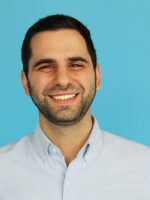How great would it be to win a brand new car? How horrible would it be to get laid off from your job? Research by psychologist Dan Gilbert at Harvard University suggests, not that great and not that horrible (respectively). Among the many things Gilbert studies is how people make predictions about future events—specifically, how we make predictions about how we'll feel about future events. One of the most important questions we ask when making any decision is "how will this make me feel?" But no matter how much time we spend thinking about the future, we don't get any better at predicting it. That's why, as Gilbert writes in his book Stumbling on Happiness, divorce lawyers and people who remove tattoos continue to have a steady stream of customers.
This week, Shankar talks to Dan Gilbert about where we go wrong in making our predictions, and how we can use this research to lead happier lives.
The Hidden Brain Podcast is hosted by Shankar Vedantam and produced by Tara Boyle, Maggie Penman, Chris Benderev, and Jennifer Schmidt. Our staff also includes Kara McGuirk-Allison and Renee Klahr. To subscribe to our newsletter, click here. You can also follow us on Twitter @hiddenbrain, @taraboyle885 @maggiepenman, @jennyjennyschmi and @cbndrv, and listen for Hidden Brain stories every week on your local public radio station.
Copyright 2021 NPR. To see more, visit https://www.npr.org.







